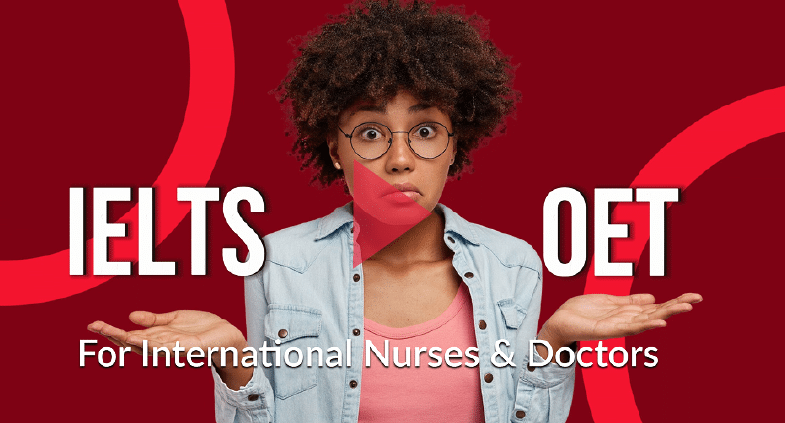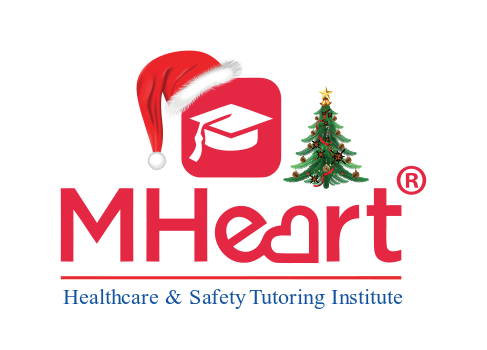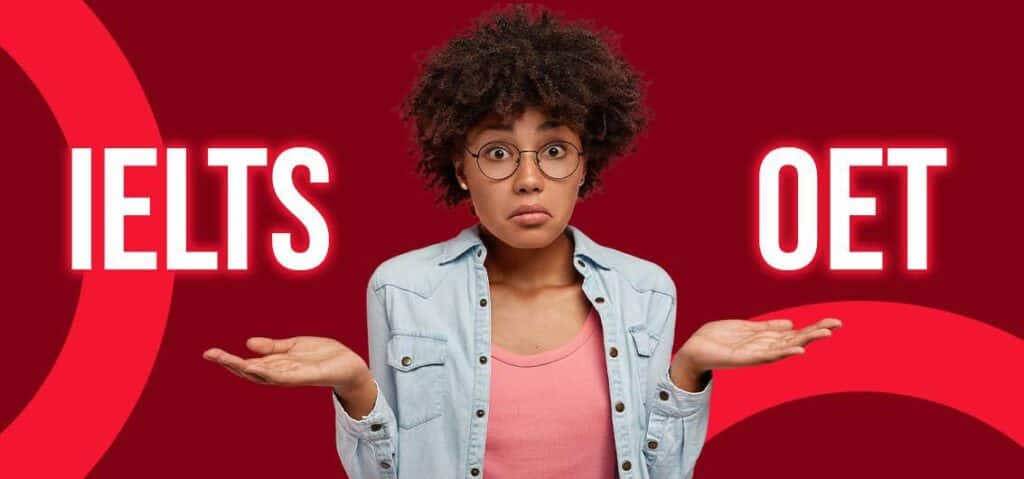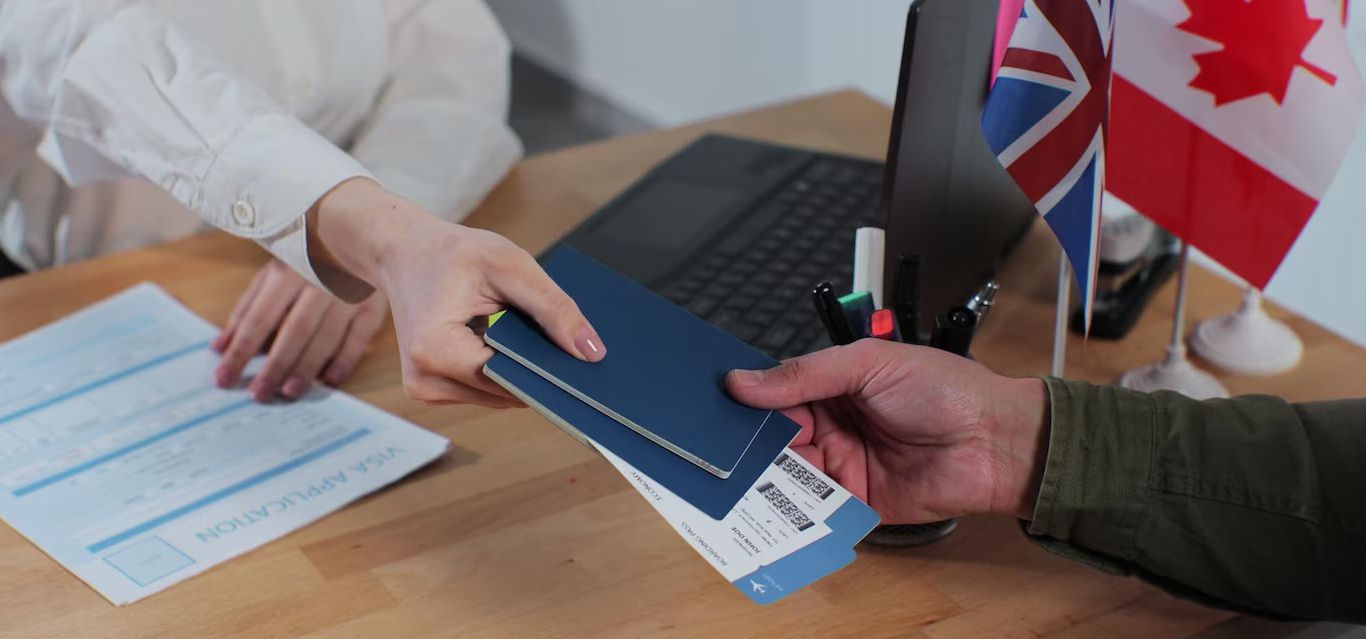This guide is for internationally educated nurses and doctors preparing to take an English test for work, registration, or training in English-speaking countries. Whether you’re applying to the UK, Australia, Canada, or elsewhere — we’ll help you choose the right test for your healthcare career.
For Nurses: Your Nursing Registration Starts with English
If you’re an internationally educated nurse planning to work in an English-speaking country like the UK, U.S., Canada, Australia, or New Zealand, your English test is one of the first and most critical steps toward registration.
Whether you’re a registered nurse from the Philippines, India, Nigeria, South Africa, or Pakistan, proving your English proficiency is a gateway to your nursing career abroad — and a mandatory requirement before you can proceed to credential evaluation, licensing exams, or bridging programs. Most regulatory bodies require proof of English language skills before licensing, such as:
Licensing Exams for Nurses:
- NCLEX-RN – United States & Canada
- CBT / OSCE – United Kingdom
- MCQ / OSCE – Australia & New Zealand
Pro Tip: Apply for multiple jobs that mention “Visa Sponsorship Available” to increase your chances of securing an offer.
Credential Evaluation Bodies:
- NNAS – (National Nursing Assessment Service, Canada)
- NCAS – (Nursing Community Assessment Service, Canada)
- BCCNM – (British Columbia College of Nurses and Midwives, Canada)
- CGFNS – (Commission on Graduates of Foreign Nursing Schools, U.S.)
- NMC – (Nursing and Midwifery Council, UK)
- AHPRA – (Australian Health Practitioner Regulation Agency, Australia)
Most Nursing Councils Accept Two English Exams:
- IELTS – (International English Language Testing System)
- OET – (Occupational English Test)
For Doctors: Your Medical Registration Starts with English
If you’re an internationally trained doctor seeking registration in an English-speaking country, your English test is one of the first and most important requirements — often before clinical exams, licensing, or verification.
Licensing Exams for Doctors:
- PLAB or UKMLA – United Kingdom
- AMC Exams – Australia
- MCCQE – Canada
- USMLE / ECFMG / EPIC – United States
Credential & Verification Bodies:
- GMC – General Medical Council (UK)
- AMC / AHPRA – Australia
- Medical Council of Canada – (via physiciansapply.ca)
- ECFMG / EPIC – U.S.
Most Medical Councils Accept Two English Exams:
- IIELTS (Academic Module)
- OET (Medicine Sub-Test)
IELTS vs. OET: Key Differences
|
Feature |
IELTS |
OET |
|---|---|---|
|
Test Format |
Academic/general English |
Healthcare-specific English (12 roles: Nursing, Medicine, Pharmacy, etc.) |
|
Writing Task |
Essay + graph/chart description |
Referral, discharge, or transfer letter (profession-based) |
|
Speaking Task |
General interview (e.g., opinions, experiences) |
Role-play with a patient or carer (as a nurse or doctor) |
|
Listening & Reading |
General themes (news, education, work) |
Medical themes (handovers, charts, consultations) |
|
Scoring |
Band 0–9 |
Grade A (highest) to E (lowest) |
|
Test Duration |
~2 hours 45 minutes |
~3 hours |
|
Test Availability |
Paper-based, computer-based, and IELTS Online (at home) |
Paper-based, computer-based (at center or via OET@Home) |
|
Recognition |
Global — all fields (study, work, healthcare) |
Healthcare regulators — nurses, doctors, etc. |
|
Validity |
2 years |
2 years |
|
Test Prep Difficulty |
May feel abstract or unfamiliar (non-clinical |
Feels relevant but is highly technical — clarity and clinical accuracy matter |
|
Cost |
Generally more affordable |
Often more expensive, but healthcare specific |
Is OET Really Easier? Myth vs. Reality
|
Myth |
Reality |
|---|---|
|
OET is an easy test because it’s nursing-related. |
OET requires strong medical English skills. If you misuse medical terminology, you lose marks — just like making a clinical error in a hospital setting. |
|
ELTS is harder because it’s not healthcare-specific. |
IELTS tests general English, but you don’t need advanced medical vocabulary — making it easier for some candidates who prefer academic topics. |
|
OET guarantees a pass because it’s for healthcare professionals. |
Many doctors and nurses fail OET because they underestimate how detailed their answers must be. OET writing and speaking require clear, structured communication — just like in real clinical handovers or referrals. |
Visa Tip for UK Applicants
If you’re moving to the UK for work, you’ll likely need the IELTS for UKVI – Academic test — as it’s accepted by both:.
- UK Visas and Immigration (UKVI) for your Tier 2 work visa
- NMC (for nurses) and GMC (for doctors) for professional registration
- The OET test is not accepted for UK visa purposes, even though it’s accepted by the NMC and GMC.
- To avoid taking two separate tests, many candidates choose IELTS for UKVI – Academic, which covers both visa and registration needs.
Disclaimer:
- The information provided is for general guidance only and may change based on UKVI or regulatory body updates.
- Monse-Heart is not responsible for individual visa or registration outcomes.
- Always check with your employer, recruitment agency, or official authority to confirm which test you need to take.
How to Prepare for IELTS or OET (The Smart Way!)
Remember: This isn’t just any test — it’s the first step in your medical or nursing licensure process and your journey abroad.
Failing can delay your registration, visa approval, or even your job offer — so preparing the right way is the key!
Tips for IELTS & OET Success (For Nurses and Doctors):
Understand the test format — don’t walk in unprepared!
- Practice under timed conditions to improve speed & accuracy.
- Use official test prep materials for the best results.
- Get expert feedback on writing & speaking — most healthcare professionals lose marks in these sections!
- Simulate real test conditions before your exam day.
Need help preparing?
Monse-Heart offers expert-led coaching for both IELTS and OET — tailored for international nurses and doctors!
Final Thoughts: Choose Wisely, Study Smart — Not Hard!
Your English test is the key that unlocks the door to your international medical or nursing career. Without it, you can’t even begin the credential evaluation process. So, choose wisely, study smart — not hard — and take the test with confidence.
Final Advice:
- Pick the test that matches your strengths.
- Start preparing early to avoid delays in your registration or licensure process.
- Use the right resources & get professional guidance if needed.
- Stay consistent — small daily practice leads to big success!
Your Healthcare Future Starts NOW!
Get ready, get prepared, and take action!
Join Monse-Heart’s English Prep Course & Pass IELTS/OET with Confidence — whether you’re a doctor or a nurse.
Prepare wisely. Study smart — not hard. Your English test is the first step toward your medical or nursing career abroad.
Your English Test Journey Starts with Monse-Heart
Whether you’re preparing for IELTS or OET — you don’t have to do it alone. We’re here to guide, teach, and cheer you on — every step of the way.
Watch the YouTube Video:
IELTS vs. OET for International Nurses & Doctors

Watch These Videos to Prepare Smart
- IELTS vs. OET for International Nurses & Doctors (You Are Here)
- Healthcare Communication – Advanced Course Overview
- Healthcare Communication – Essentials Course Overview
- Learning Hacks 101 – Brain-Based Study Strategies
Read These Blogs to Deepen Your Understanding:
- IELTS vs. OET for International Nurses & Doctors (You Are Here)
- Master Healthcare Communication – OET Prep for Doctors & Nurses
- Essentials Spoken English for Healthcare Communication
- Advanced Spoken English for Healthcare Professionals
- Increase Your Marketability: Learn the Universal English Language
- Learning Hacks 101: Brain-Based Learning
Ready to Start?
Choose your path and join a prep course tailored to your goals:
Get the skills. Pass the test. Step into your healthcare career abroad — confidently.
Frequently Asked Questions (FAQs)
• IELTS assesses general English skills across academic and workplace settings.
• OET is designed specifically for healthcare professionals — doctors, nurses, and others — using real clinical communication tasks.
Not necessarily. While OET uses familiar medical scenarios, it still demands strong medical English, critical thinking, and clear, structured communication. It may feel more relevant — but not necessarily easier.
OET is accepted in limited Canadian provinces and for certain roles. IELTS remains more widely recognized for Canadian licensure, especially for nurses. Always check with your province’s regulatory body (e.g., NNAS, BCCNM, NCAS).
Yes. Both tests are accepted for nursing and medical licensure in the UK and U.S. However, check the specific requirements of your governing body (e.g., NMC, GMC, CGFNS, ECFMG).
It depends on your strengths:
• Prefer general topics and essay-style writing? IELTS
• Prefer clinical roleplays and writing referral/discharge letters? OET
Choose the format that suits your communication style and professional confidence.
Both IELTS and OET results are valid for 2 years from your test date. Make sure you complete your licensing steps (like NMC, NCLEX, AHPRA, etc.) within that time.
• Learn the test format
• Practice under timed conditions
• Use official materials
• Get expert feedback on writing and speaking
• Simulate real test environments before exam day
Join our structured Monse-Heart English Test Prep Course — with personalized support tailored for both doctors and nurses. Get step-by-step help to build confidence and pass with ease!
Disclaimer:
The content in this blog is intended for general informational purposes only and should not be considered a substitute for official immigration, licensing, or regulatory advice. While Monse-Heart provides expert guidance, training materials, and support resources to help you prepare effectively, your success on any English language test depends on your individual preparation, test-taking skills, and English proficiency level.
We recommend that all readers:
- Confirm current requirements with official authorities such as the NMC, GMC, AHPRA, CGFNS, or ECFMG.
- Consult with your recruitment agency, employer, or immigration advisor regarding specific eligibility or documentation requirements.
- Refer to the official IELTS and OET websites for the most up-to-date test policies and procedures.
- Monse-Heart is not liable for outcomes related to test scores, visa decisions, or professional registration processes



















